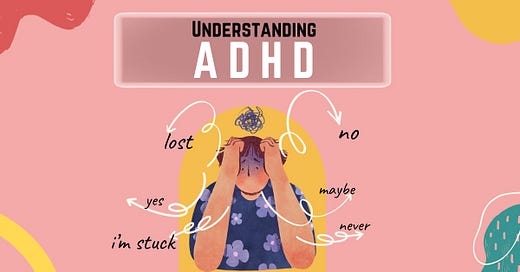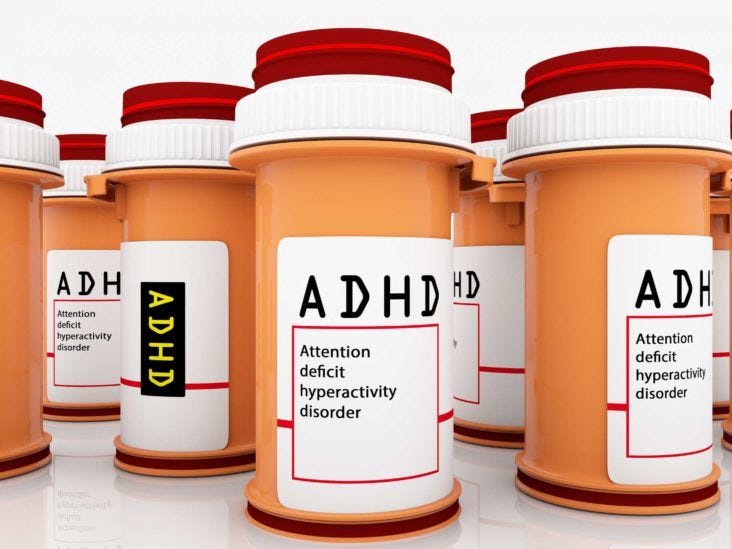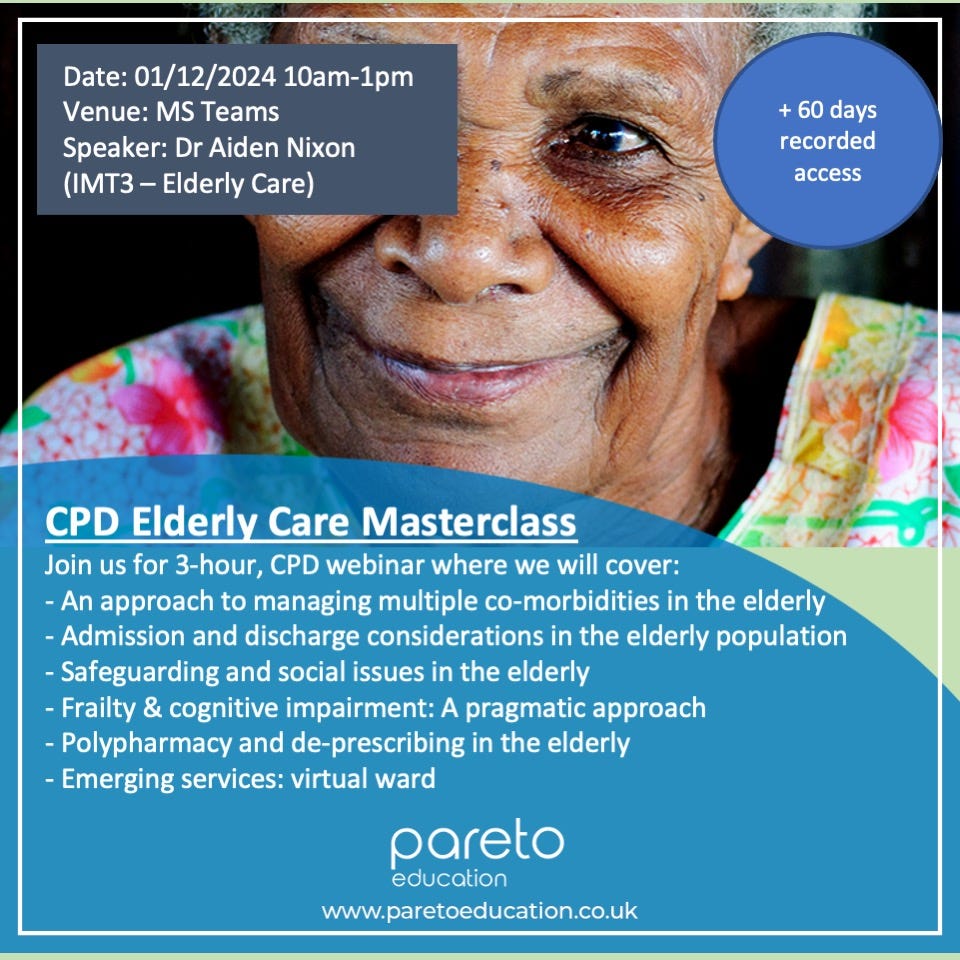We’re currently preparing hard for our upcoming CPD MDT Update Course so are bringing together guidance around important diseases.
Attention deficit hyperactivity disorder (ADHD) is certainly one of them. The rates of ADHD referrals and diagnosis has sky rocketed in the UK. Currently the global prevalence is 5% whilst the UK preval—ence is 4%.
More specific studies have found that 1.4% had an ADHD diagnosis and 0.6% had been prescribed ADHD medication in 2000, rising to 3.5% and 2.4% respectively in 2018.
So how do we navigate a “?ADHD” diagnosis?
What is ADHD?
The symptoms lie in the name. Currently the diagnostic criteria includes three domains:
Inattention
Hyperactivity
Impulsivity
These symptoms have to have started within childhood and present over time. They should also affect the patient across multiple settings and cause significant impairment.
It is important to remember that ADHD can occur in highly intelligent people. This can sometimes be overlooked. It is highly heritable so a family history is important and other forms of neurodivergence may also be present such as autism.
Why we should take ADHD seriously?
ADHD is reportedly under diagnosed due to lack of awareness, stigma and lack of funding and resources. This means that many children and adults live day-to-day with ADHD leading to a number of behaviours such as crime, substance use, accidental injury, educational underachievement, unemployment, teenage pregnancy, death and ultimately a reduced quality of life.
There is also a significant association between ADHD and T2DM and obesity.
Diagnosis and treatment is important. A large observational study involving 150,000 patients found that medication reduces all-cause mortality in patients with ADHD. Whilst the quality of the evidence is low, the low side effect profile and current evidence base continues to support the use of medication and psychological therapies.
So how does ADHD present?
As the diagnosis is ultimately made by a psychologist/psychiatrist, NICE only gives us indications as to what the symptoms might be. NICE explain that in children, the original referral may come from school and in adults, it is usually at the request of the patient themselves.
However, as a guide, here are some key signs that could lend to a diagnosis of ADHD:
School Age:
Problems managing behaviour, including aggression.
Academic struggles
Peers become less tolerant of social interaction difficulties.
Antisocial behaviour.
Low self-esteem
Not coping with routine tasks.
Adults:
Anger problems.
Relationship problems.
Antisocial behaviours, Forensic history (26% of people in prison have ADHD).
Difficulty planning and completing tasks.
Psychiatric problems - depression, bipolar disorder esp. treatment-resistant.
When taking a history, it is also important to consider the other tools that could help aid the diagnosis:
A collateral history from either school, family, work or social clubs
Use questionnaires. You can ask patients to fill out the Adult ADHD Self report questionnaire (ASRS) where a score of >/= 4 is highly sensitive.
In summary, NICE recommend the following consideration before making a referral:
NICE savs a specialist assessment should include:
A full clinical and psychosocial assessment, including discussion of behaviour and symptoms in different settings in the person's life
A full developmental and psychiatric history
Observer reports and assessment of the person's mental state
A holistic assessment of the person's needs, social circumstances, and physical health and comorbidities
For children, there should also be an assessment of their parents' or carers' mental health
Referrals and pitfalls
Currently the waiting list for NHS assessment is anything between 12-24 months. This is a long time for initial assessment especially if the child or adult is having significant impairment of day-to-day activity.
This has meant that many patients are going to private services. NICE has provided a framework for diagnosis and NHS providers typically follow this evidence-based approach. Unfortunately, this can not always be stated for private providers who remain unregulated in the ADHD diagnostic and management spaces. Concerns have been raised by a number of associations and work is being done to control the quality and basis of emerging diagnosis’.
The NHS is currently seeking practitioners that could contribute to ADHD/autism assessment and diagnosis. If you’re interested, there might be emerging options for emerging roles!
What medications are available?
Whether diagnosed via the NHS or a private provider, you may be asked to issue medications for patients with ADHD. Generally speaking, the golden rule about who gets medications is as follows:
In children under 5y: medication is almost never appropriate, being initiated by tertiary services only very occasionally.
For children aged 5y+ and adults: secondary care should offer medication if symptoms remain problematic after environmental modifications have been implemented and reviewed.
Currently the licensed treatment is as follows:
First line in children: methylphenidate.
First line in adults: methylphenidate or lisdexamfetamine.
These medications are neurological stimulants. There is a period of dose stablisation which takes 4-6 weeks after which monitoring should occur. The monitoring requirements are:
Height and weight.
Heart rate and blood pressure.
ECG only if there are cardiac concerns (e.g. personal or family history of significant cardiac disease, symptoms of potential cardiac origin, hypertension).
Risk of substance misuse and passing on medication for non-prescription use.
NICE recommend measuring height, weight, heart and blood pressure at least 6 monthly in both children and adults. The evidence behind the use of these medications is of poor quality but there are many anecdotal examples where patients feel much better on such stimulants.
As for non drug treatments for ADHD, these could include the following:
ADHD parent training for children
Healthy lifestyle and diet management
Environmental modifications including phone use, lighting, sleep.
CBT
So that’s it. A comprehensive update on ADHD which as clinicians, we will undoubtedly see more over the years. I’m generally all for patient education and tend to refer patients to ADDISS - Attention Deficit Disorder Information and Support Service for further advice.
Until next time
Winter & Elderly Care: Our MOST important course
I absolutely adore elderly patients. They’re loving, resilient and have sacrificed a great deal for the comforts we enjoy today. As people are living for longer, the complexity of issues is increasing and we recognise the need to upskill as clinicians who can tackle medical problems in the elderly.
We are proud to be inviting Dr Aiden Nixon, an Internal Medicine Trainee (Yr 3) with an established interest in elderly care. He will be delivering a 3 hour LIVE masterclass on issues affecting the elderly which promises to be an insightful course. Remember, if you can’t attend on the day, we will also be recording it for future access!
To learn more and book, please visit our website
Website: www.paretoeducation.co.uk
Instagram: www.instagram.com/pareto_ed
Twitter: www.twitter.com/pareto_ed
Youtube: https://bit.ly/3DPm23c
Email: info@paretoeducation.co.uk








